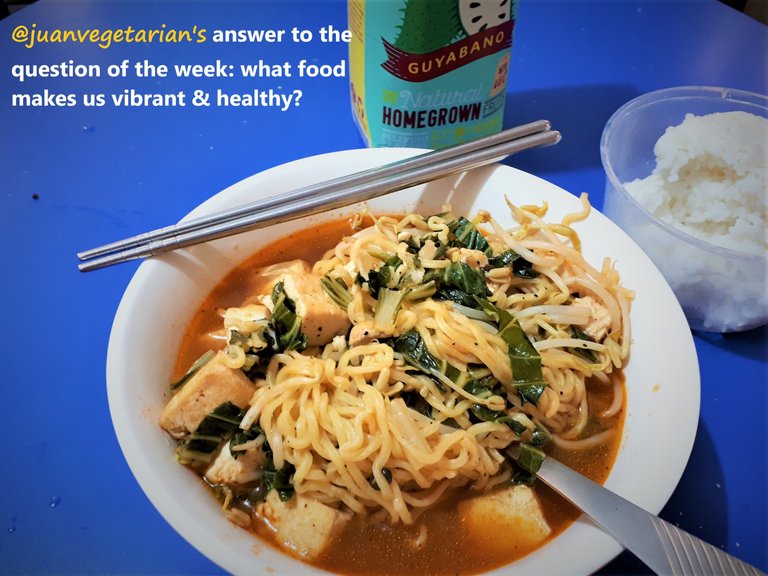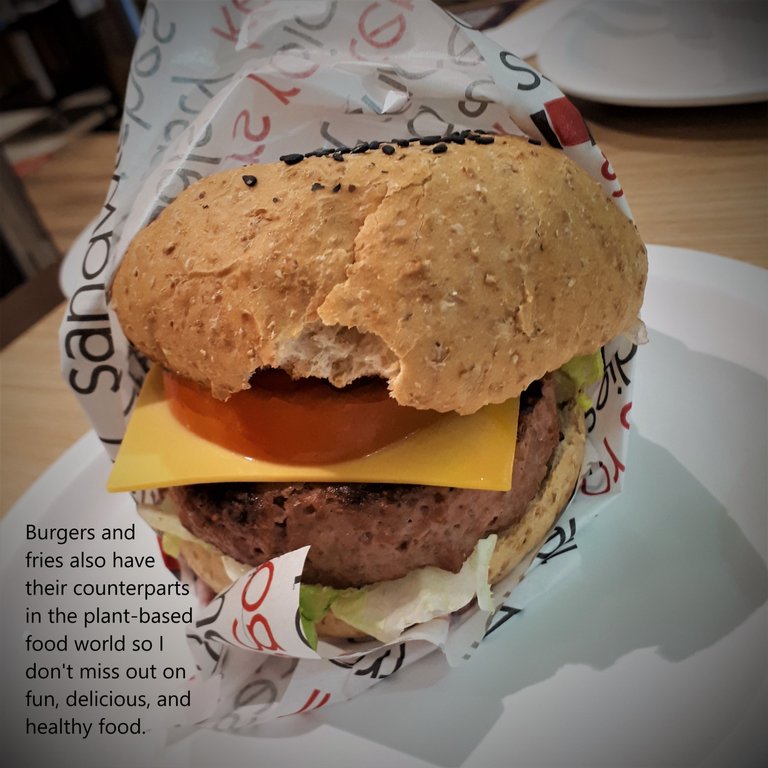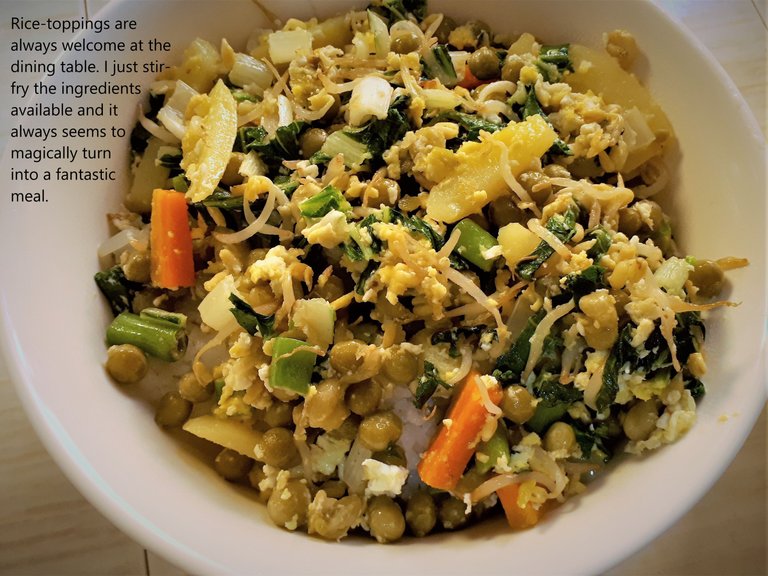
I've been a vegetarian for a long time already but I still get stumped whenever I try to answer things related to food.
Intro...
This is really a great question for this week (kudos @ecotrain!), and one that has been debated on without a clear winner for a long time. So, thinking about my approach in trying to answer this controversial topic, I decided to just to try and express it in terms of what I do or how I feel about it; meaning how I approach my day-to-day eating and not necessarily the science behind #vegan, #vegetarian, and #plant-based diets because there are already so many resources online available for people interested in in-depth research and analysis.
Just go with the flow.
Being #vegetarian is most probably the only boundary I have in my eating habits. Aside from that, I don't consider myself a conscious eater. I eat what I want whenever I feel hungry. I don't really plan meals either. I usually just buy the freshest produce in the market and pair it with the stocks we have in our pantry. Tied up to this are the elements of price and source. Although I'm not too chatty and inquisitive when buying from the farmer's market, I try to be friendly with the sellers who are eager to share where their produce is from. From this, I get a rough idea of the percentage of produce I get from local sources (50:50 give or take). The ambulant vendor who sells veggies in our subdivision gets her supplies from the whole sellers and big stores so that is easy to factor in..
I ❤️ veggie burgers...

Eating out has always been a good bonding moment for the family. It's much better with #plant-based options.
Asians love eating rice, so that is always available and included in our grocery list. We love brown rice, but have since gotten back to eating white rice because we "share" the rice with our pet dogs on most days, just to add to the variety of food that they eat on a daily basis. They do get tired of eating dog food and it influences how we eat on a basic level.
We vegetarians have specific dietary needs that need to be taken into consideration when talking about a nutritional needs analysis: Vitamin D and choline to be specific. The reason being that these two are the nutrients commonly lacking in a vegetarian diet. Aside from that supplements can be taken to augment other deficiencies.
Sometimes, if I crave for a pesto pasta or maybe a mac and cheese, I just grab some ingredients at the supermarket and cook that meal or just order a specific dish that I want to have for dinner from an online store or resto. It's all very "intuitive" if that even makes sense; I just go with the flow.
Conclusion
What to eat in order to be healthy and vibrant can differ vastly even in one family. Age and health condition, eating habits, and the kind of food you like plays an important role in it. But what's more important, in my opinion, is to listen to your body. I believe that your body knows what's good for it so we need to learn how to listen because it doesn't necessarily follow that a good diet for me is also good for you and vice-versa.

Being a passionate cook is great if you want to transition into a #vegetarian diet, but it isn't a requirement.
That's it for now. Thanks for reading up to here. Love and peace.
*i own all the photos used in this blog post.


